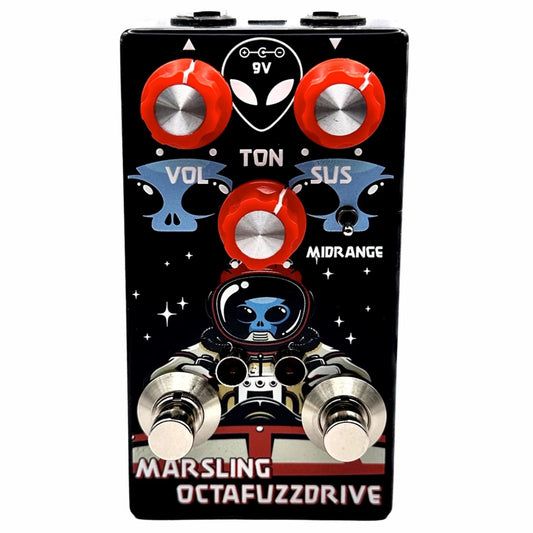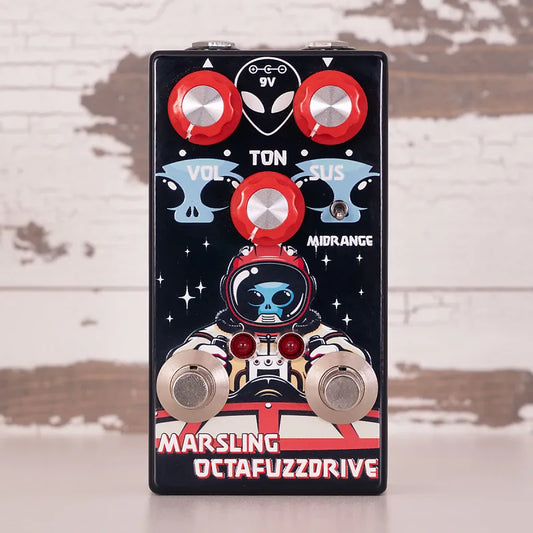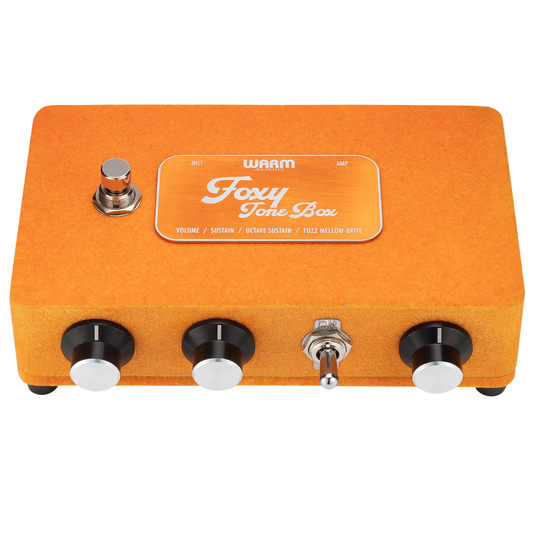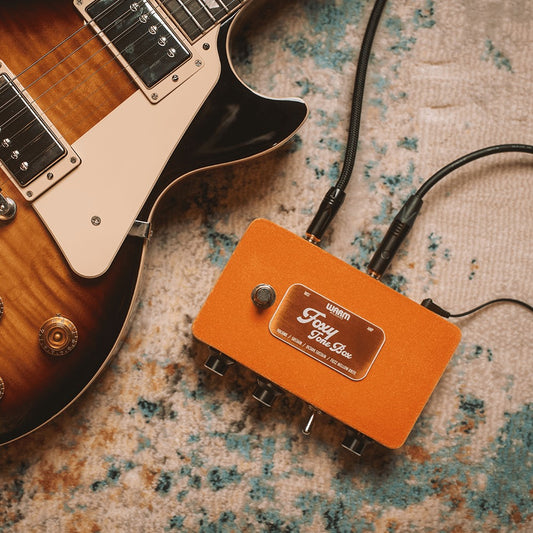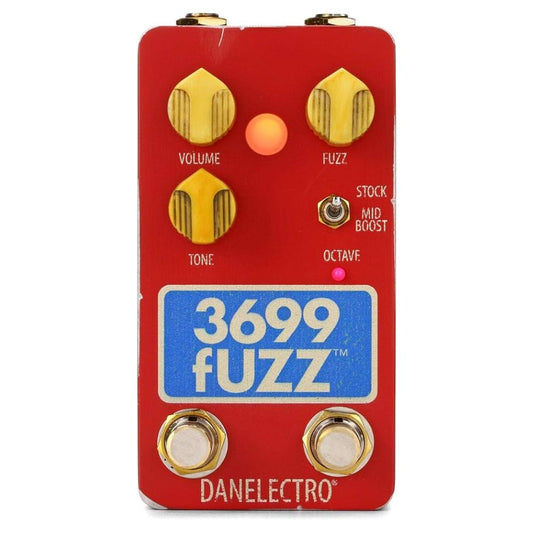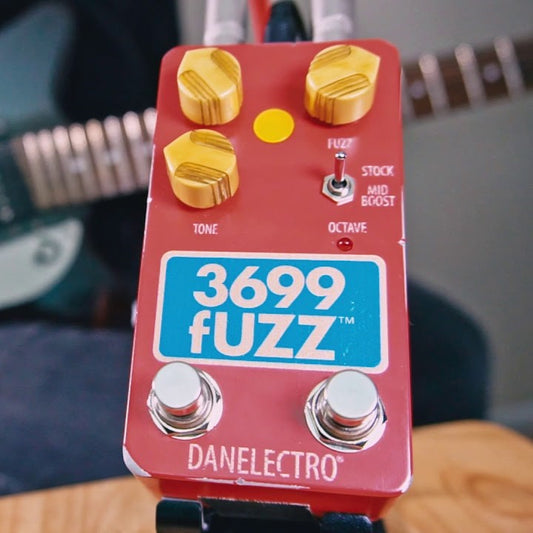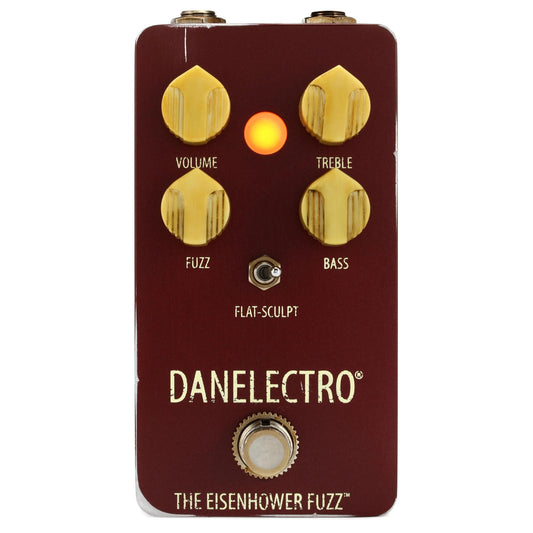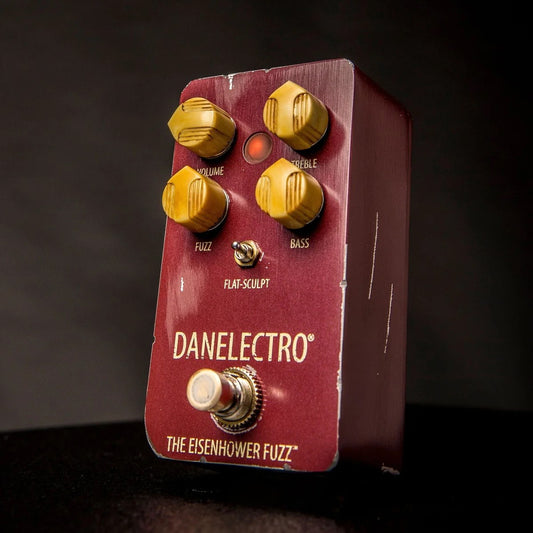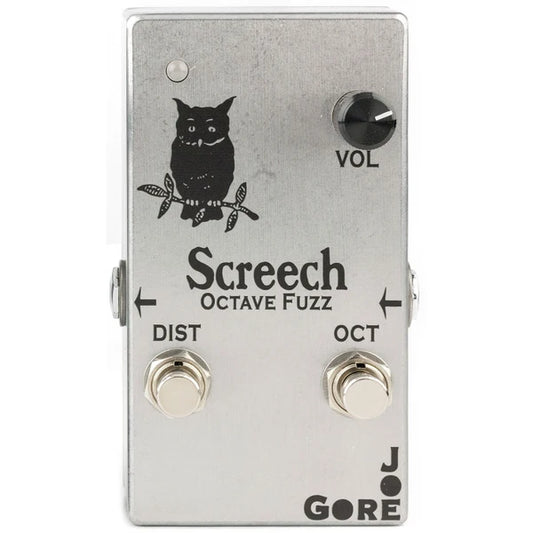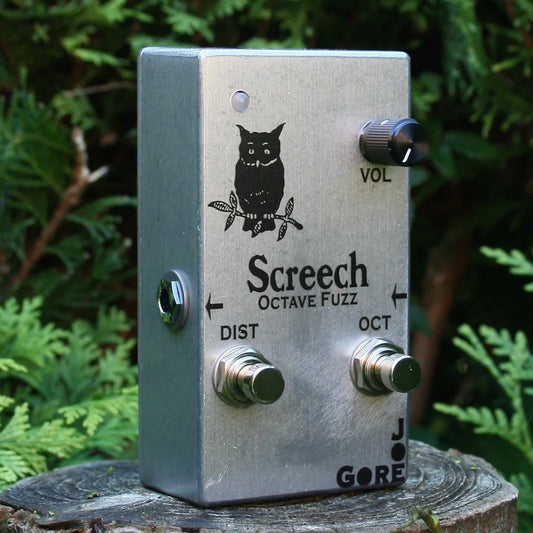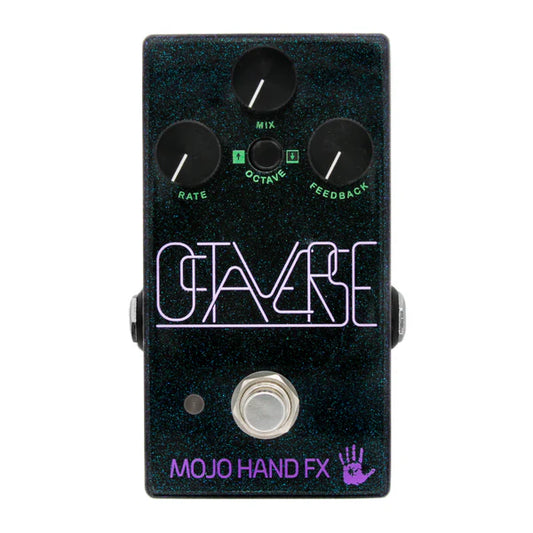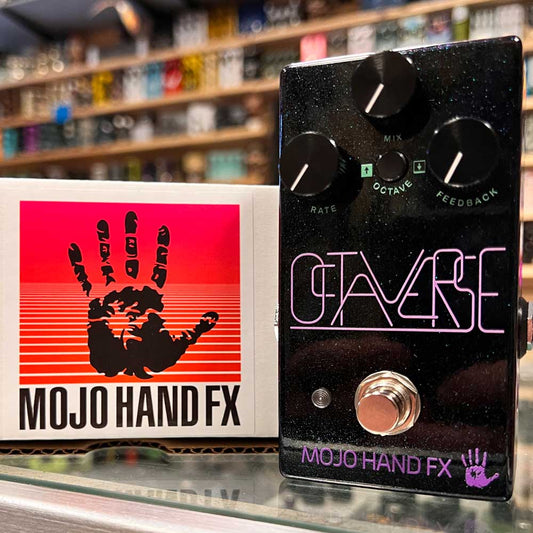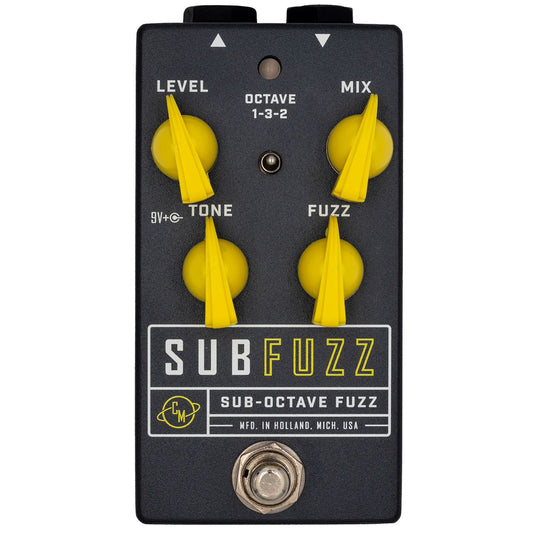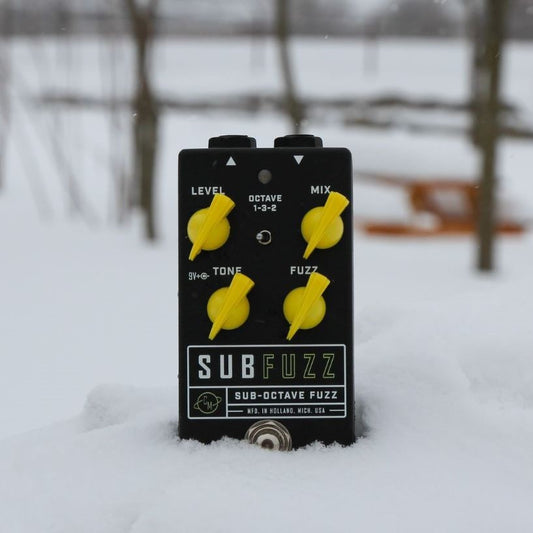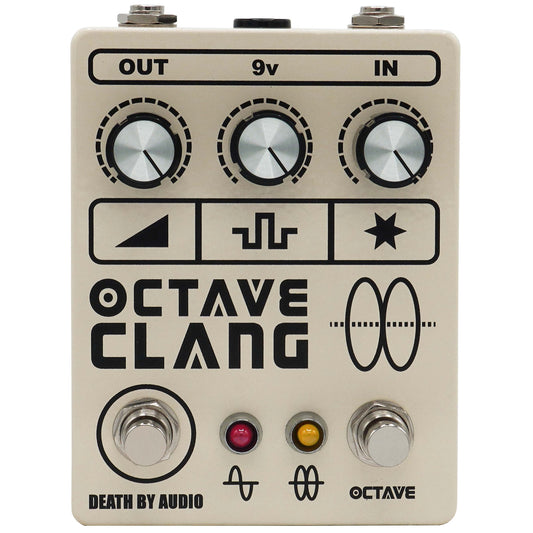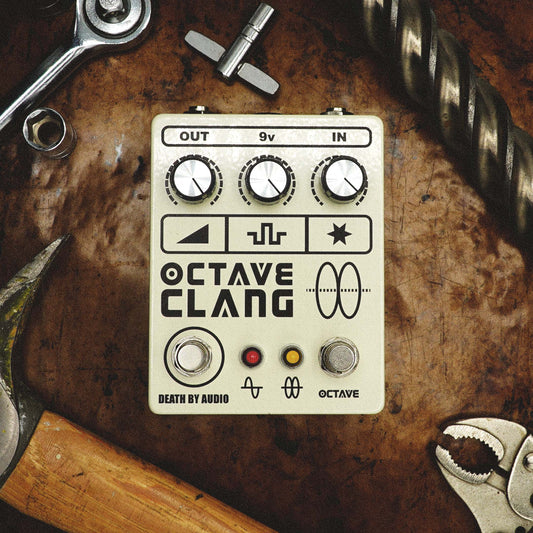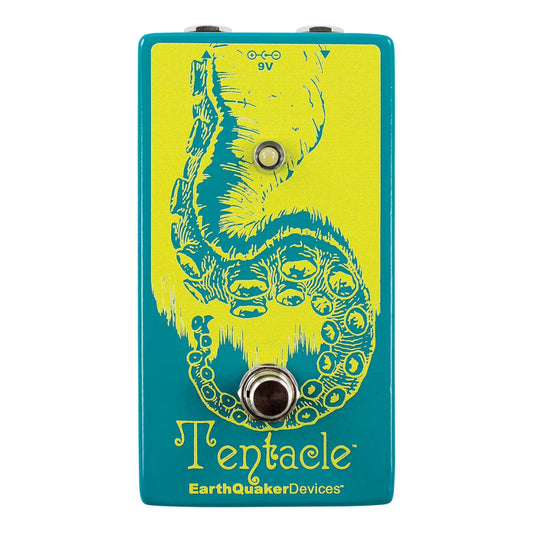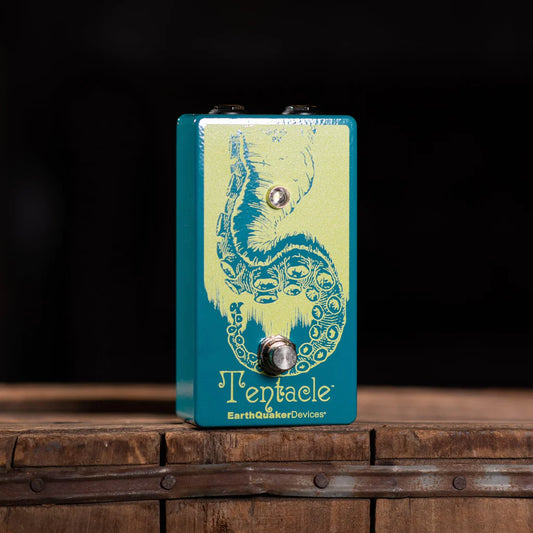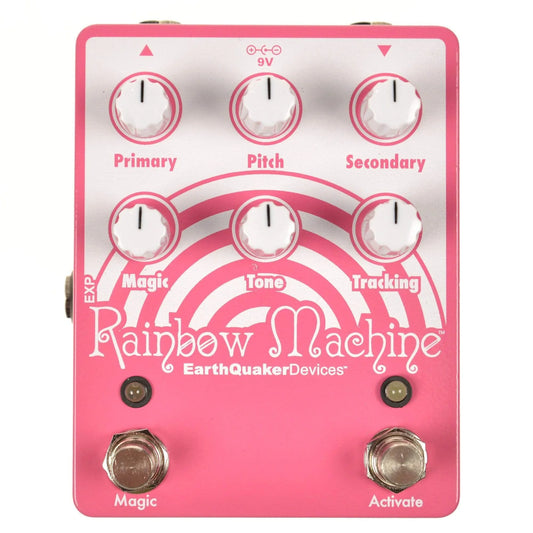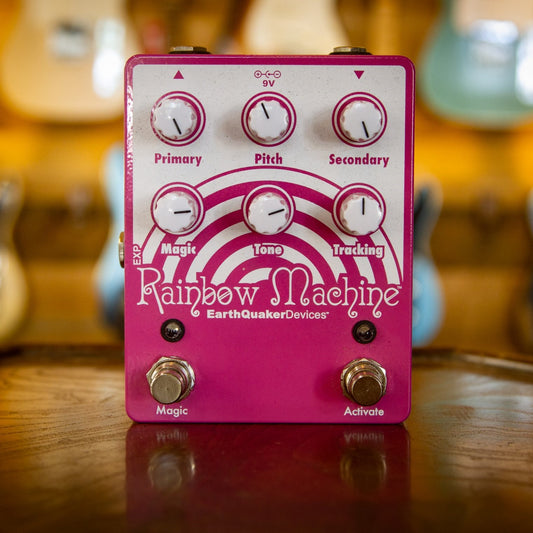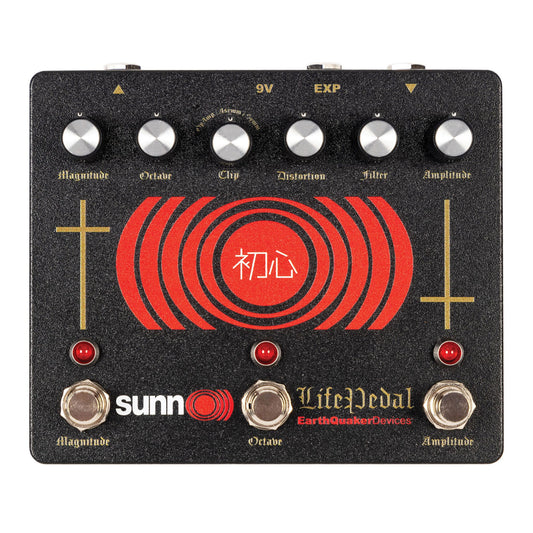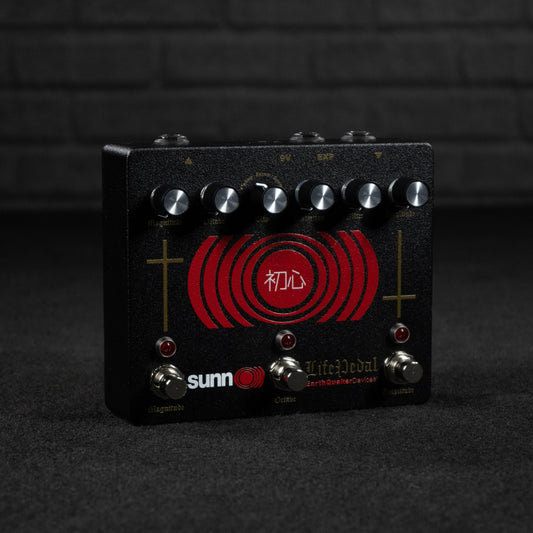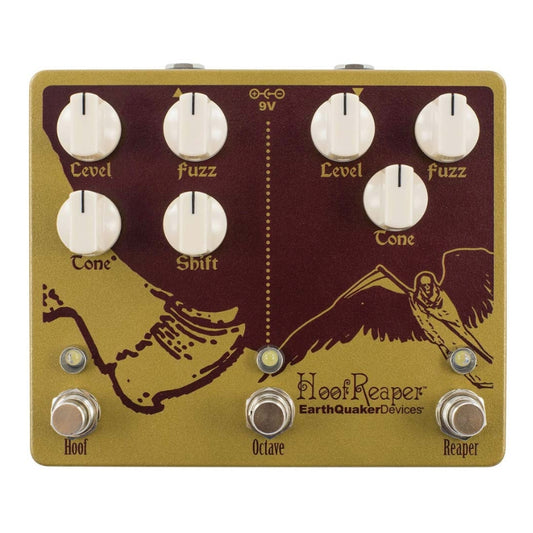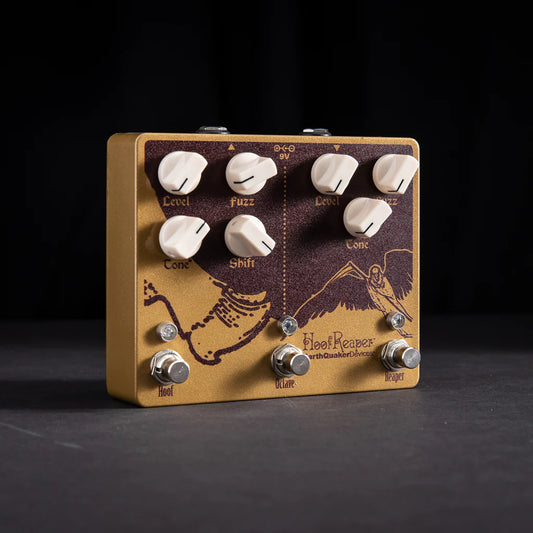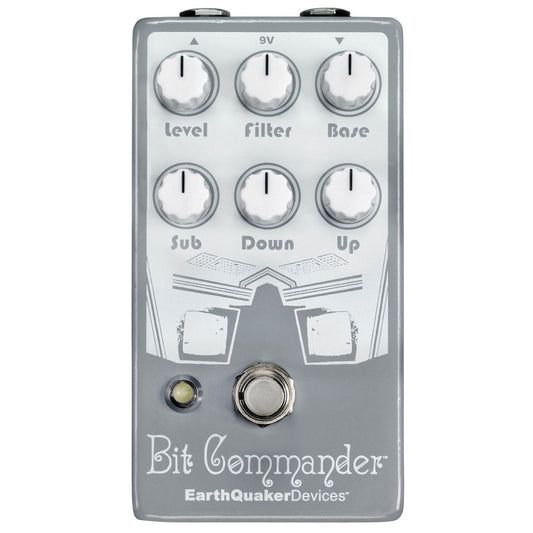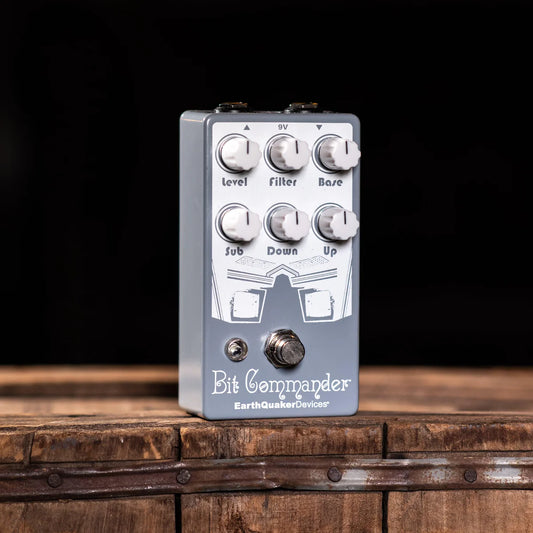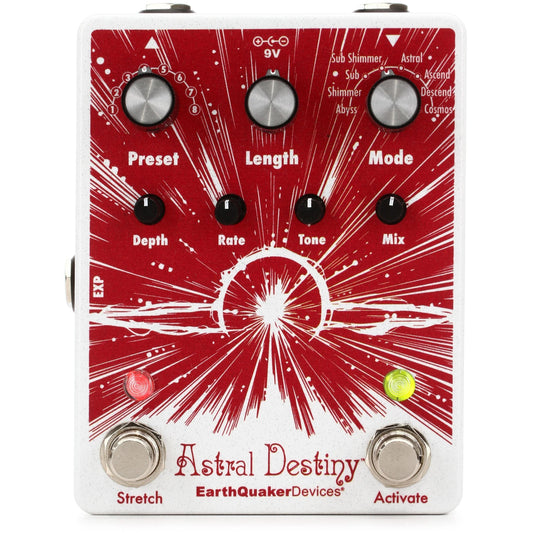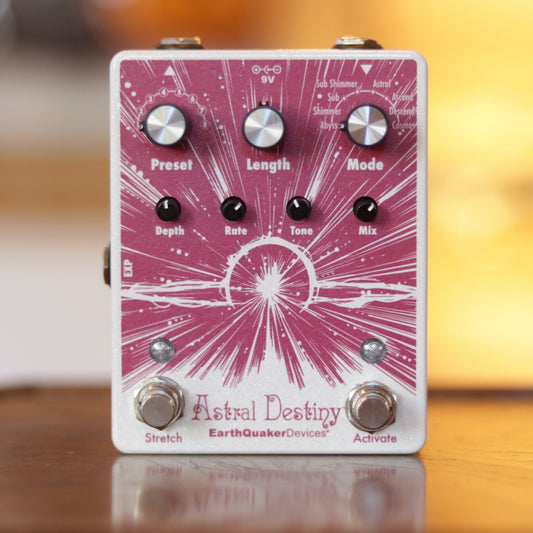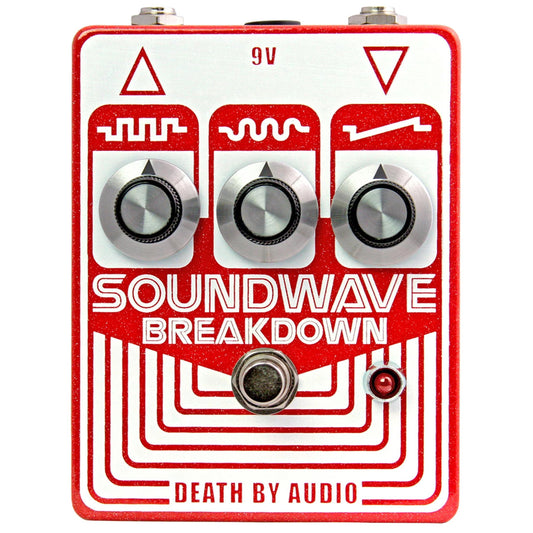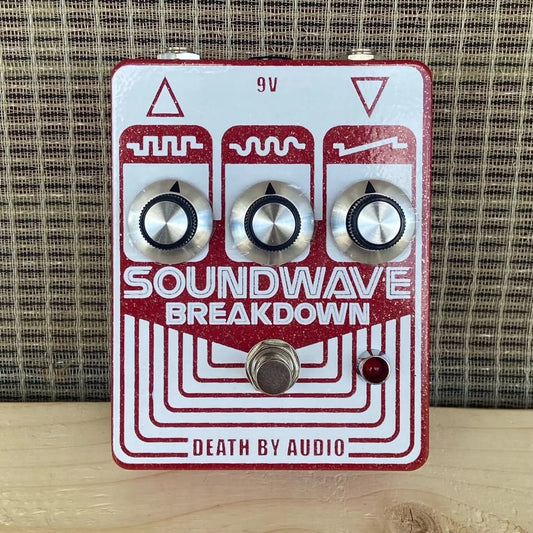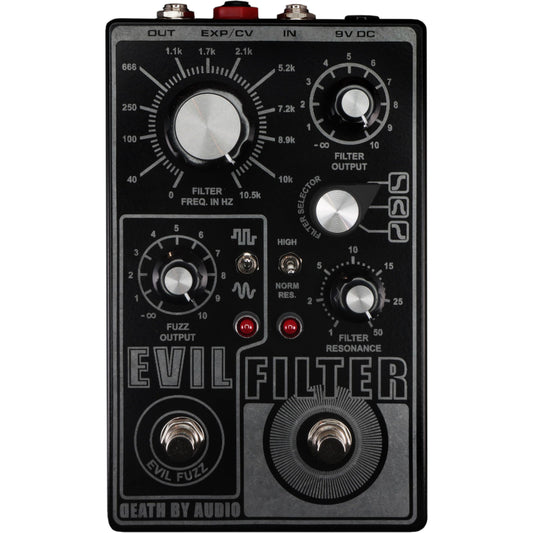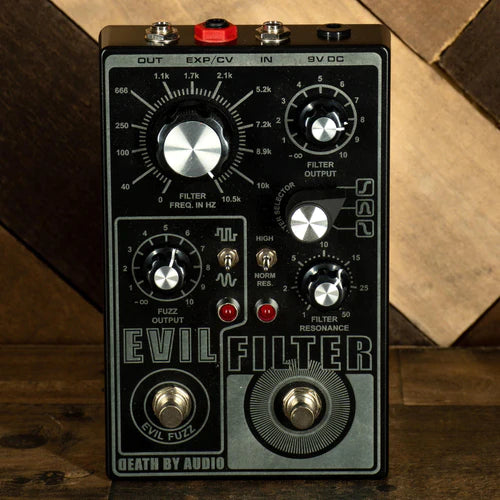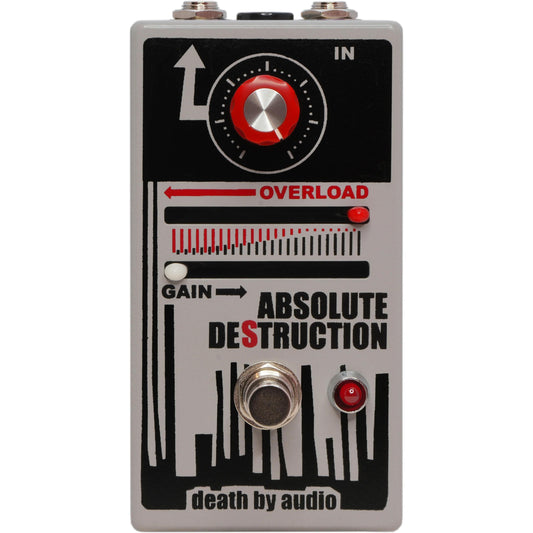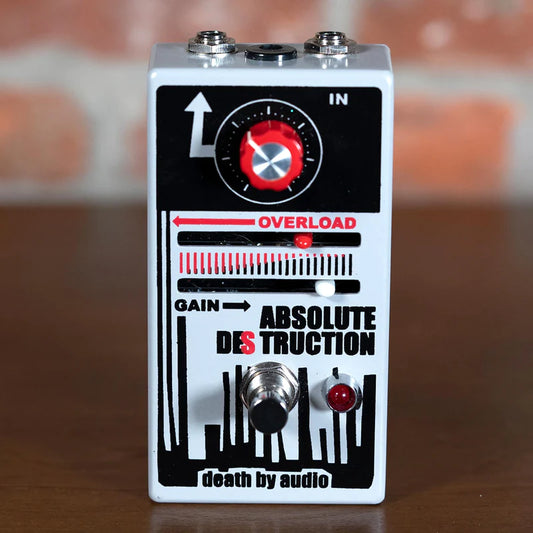Octave Pedals
-
Interstellar Audio Machines Marsling Octafuzzdrive Pedal
No reviewsRegular price $199.00Regular priceUnit price / per$249.00Sale price $199.00$50 off -
Warm Audio Foxy Tone Box Fuzz Pedal
No reviewsRegular price $149.00Regular priceUnit price / per$149.00Sale price $149.00 -
Danelectro 3699 Fuzz Pedal
No reviewsRegular price $199.00Regular priceUnit price / per$199.00Sale price $199.00 -
Danelectro Eisenhower Fuzz Pedal
No reviewsRegular price $149.00Regular priceUnit price / per$149.00Sale price $149.00 -
Joe Gore Screech Octave Fuzz Pedal
No reviewsRegular price $179.00Regular priceUnit price / per -
Mojo Hand FX Octaverse Pedal
No reviewsRegular price $159.00Regular priceUnit price / per -
Cusack Music Sub Fuzz Pedal
No reviewsRegular price $185.00Regular priceUnit price / per -
Octave Clang V2 Death By Audio Pedal
No reviewsRegular price $225.00Regular priceUnit price / per -
EarthQuaker Devices Tentacle Pedal V2
No reviewsRegular price $129.00Regular priceUnit price / per -
EarthQuaker Devices Rainbow Machine Pedal V2
No reviewsRegular price $229.00Regular priceUnit price / per -
Life Pedal Sunn O))) EarthQuaker Devices V3
No reviewsRegular price $299.00Regular priceUnit price / per -
EarthQuaker Devices Hoof Reaper Pedal V2
No reviewsRegular price $299.00Regular priceUnit price / per -
EarthQuaker Devices Bit Commander Pedal V2
No reviewsRegular price $199.00Regular priceUnit price / per -
EarthQuaker Devices Astral Destiny Pedal
No reviewsRegular price $249.00Regular priceUnit price / per -
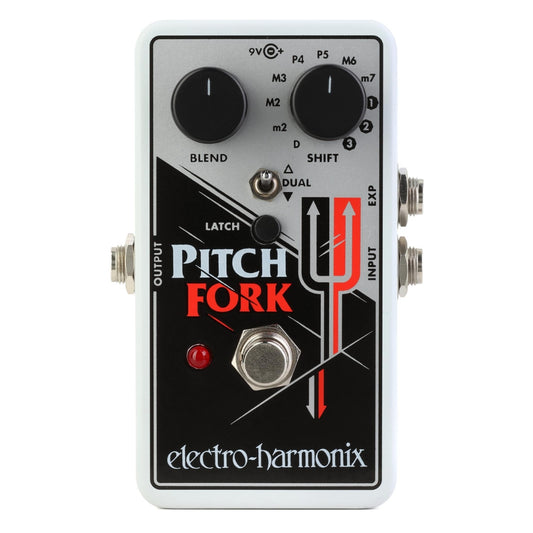
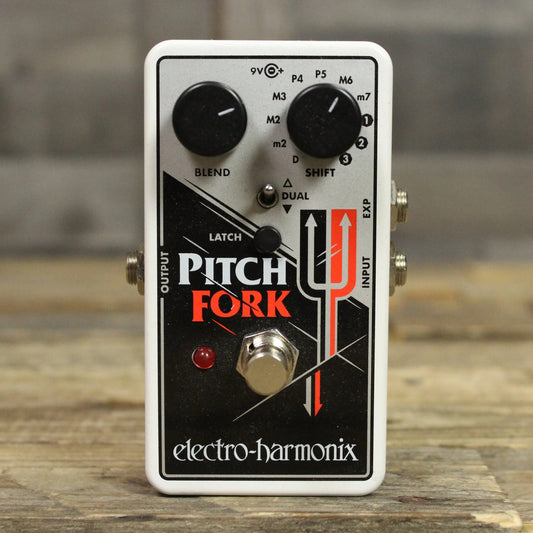 Sold out
Sold outElectro-Harmonix Pitch Fork Pedal
No reviewsRegular price $197.80Regular priceUnit price / per$263.10Sale price $197.80Sold out -
Soundwave Breakdown Death By Audio Pedal
No reviewsRegular price $180.00Regular priceUnit price / per -
Evil Filter Death By Audio Pedal
No reviewsRegular price $380.00Regular priceUnit price / per -
Absolute Destruction Death By Audio Pedal
No reviewsRegular price $180.00Regular priceUnit price / per
Collection: Octave Pedals
What does an Octave Pedal do?
Add thickness and flavor to your musical riffs by altering the pitch of your guitar with an octave pedal.
An octave pedal is an effect that shifts the pitch of the notes you play on your instrument. This guitar effect works by processing your input signal and blending it with one or more tones. The blended notes are usually one or two octaves up or down from the note you just played. It results in a more complex guitar tone by making a single note sound thicker.
Modern octave pedals are usually easy to tweak. The most common control knobs for these are its mix and octave range parameters. Some models may even have knobs to shape its tone or for additional sustain. These allow you to tweak the effect from subtle harmonic enhancements to upfront, organ-like tones, providing you with a richer sonic texture.
History of the Octave Pedal
The history of octave pedals traces back to the 1960s alongside the evolution of guitar effects. Early experiments of the octave effect led to the creation of octave dividers. These are gear that could produce low octaves, effectively emulating bass-like tones.
The mid-1960s saw the creation of the Octavia, one of the earliest octave pedals that is well-known for being responsible for the development of Jimi Hendrix’s distinct tone. The pedal, created by Roger Mayer, produced an octave-up effect. This pedal helped shape the music, especially psychedelic rock, during this era.
Developments in technology in the 1970s created more versatile octave pedals. These allowed musicians to play both the lower and higher octaves with a single pedal. Since then, octave effects have continued evolving with digital components that offer in-depth control over its tone-shaping options.
These advancements of the octave effect made it integral to the growth of genres spanning funk, rock, electronic, and indie, which influenced the tone and creativity of millions of musicians worldwide.
Who uses Octave Pedals?
Octave pedals are versatile tools embraced by musicians across a wide range of genres. From rock and metal to funk and jazz fusion, the octave effect serves a purpose that takes performances to a completely new sonic landscape.
Renowned guitarists like Tom Morello and Jack White have employed octave pedals to express themselves creatively. Their quirky ways of using the effect helped develop the respective guitar tones they are famous for today.
Bassists in funk and soul music utilize octave pedals to add richness and depth to their groovy bass lines. Meanwhile, some guitarists incorporate the octave effect into their setup to emulate bass parts, allowing them to achieve a full and layered guitar tone.
Even electronic and experimental artists keep octave effect pedals in their rig to inspire them to expand their tonal soundscapes.
Why You Need an Octave Pedal
An octave pedal is an invaluable tool if you are seeking to widen your sonic capabilities. Its versatility as an effect guarantees you different tonal flavors according to your settings.
You can have additional layers of octaves blended with your guitar tone to guarantee richness and depth, creating a fuller and more dynamic texture for your solos, basslines, or riffs. The tones of organs, basses, or 12-string guitars can also be achieved with the use of an octave pedal, providing you with endless possibilities within a single stompbox.
Anything from adding subtle thickness to your guitar solo up to bass-like octaves for your verse riff, octave pedals will expand your tonal arsenal in all of your live and studio performances.
Where to Buy Octave Pedals
Here at DeathCloud, we offer an extensive selection of octave effect pedals. Our shop carries octave pedals from today’s leading guitar pedal brands. Whether you’re a professional musician or a hobbyist looking for your next octave pedal, we ensure you a hassle-free shopping experience.

